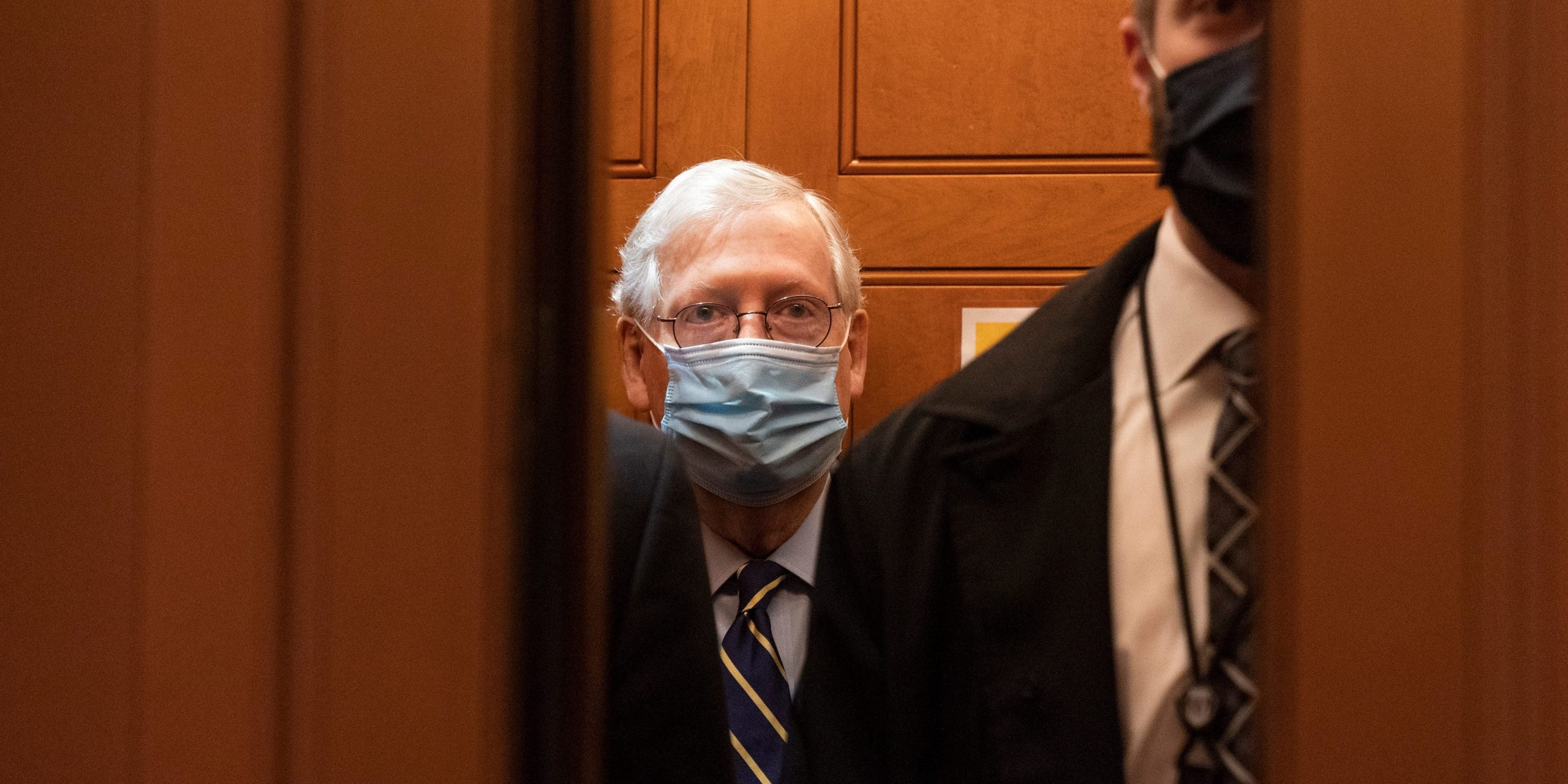
AP Photo/Jacquelyn Martin
- McConnell has a list of potential successors in case he steps down, according to The Intercept.
- The governor currently has the ability to independently pick a successor for any Senate vacancy.
- The GOP minority leader is reportedly pushing to change Kentucky state law to give parties control.
- Visit the Business section of Insider for more stories.
When former President Donald Trump lost his reelection bid, Senate Minority Leader Mitch McConnell of Kentucky became the most powerful Republican in Washington DC.
With the upper chamber evenly split between 50 Democrats and 50 Republicans, 79-year-old McConnell, who was reelected to his seventh term last year, will most certainly fight hard to regain the majority in 2022.
However, McConnell, always a tactician, has created a list of successors in case he doesn’t serve out his full term, which will expire in January 2027, according to The Intercept.
Kentucky Republicans told The Intercept that McConnell’s political protégé, state Attorney General Daniel Cameron, who has received criticism for his handling of the Breonna Taylor case, is at the top of the list.
Other names on the list include former United Nations Ambassador Kelly Craft and Kentucky Secretary of State Michael Adams.
Under current state law, Democratic Gov. Andy Beshear would have the power to pick McConnell's successor if he steps down from office, so McConnell is backing new legislation that would enable the state GOP to choose a replacement.
Senate Bill 228, which The Intercept reported has been informally called the "Daniel Cameron Election Bill," would strip the governor from independently picking a replacement and empower the executive committee of the same political party of the previously elected senator to put forward three potential replacements.
The governor would then have to appoint a successor from the party-endorsed list.
If the legislation passes, it would bar Beshear, who is opposed to the bill, from replacing McConnell with a Democratic successor.
The legislation also details when elections could proceed if there is a vacancy.
GOP state Sen. Tom Buford, a co-sponsor of the bill presented by state Senate President Robert Stivers, told The Intercept that changes in Senate appointments had been talked about for "several years."
"It just seemed if we did have a change of venue of US Senate that it would be proper and appropriate the political party that held the office would be the political party that replaced it until the next election cycle, that being in this case Republican," he said.
McConnell's office confirmed with The Intercept that the senator was on board with the changes.
"Leader McConnell has discussed the legislation with Stivers and is fully supportive of the measure," a spokesperson said.
Multiple sources informed The Intercept that McConnell was the catalyst for the new legislation, with "health concerns" and "the makeup of the upper chamber" as some of the given reasons.
However, several GOP legislators, who did not want to speak on record, told The Intercept that the changes were being pushed largely for McConnell to choose his successor, with one elected official calling the bill an "escape hatch" for the senator.
The bill would have to be approved by the Kentucky House and Senate, and the party holds veto-proof majorities in both chambers.
While McConnell has not publicly given any indications that he is stepping down, he is also entering uncharted territory among the Senate GOP caucus.
His hold on leadership remains strong, but he faces the looming presence of Trump, whom he strongly denounced for his role in the January 6 Capitol riot, despite voting to acquit the former president of "incitement of insurrection."
Last month, Trump slammed McConnell as a "dour, sullen, unsmiling political hack" and said that Republicans "will not win again" if they continue to support him.
McConnell responded that he would "absolutely" support Trump if the former president was the 2024 GOP presidential nominee.